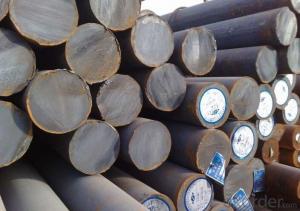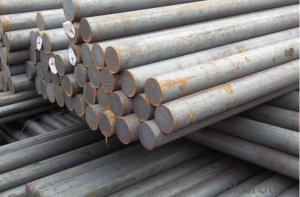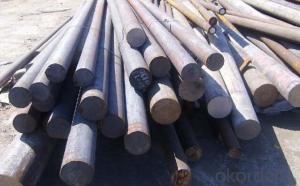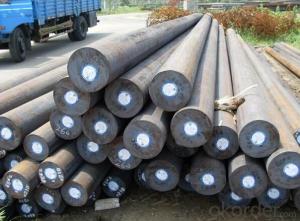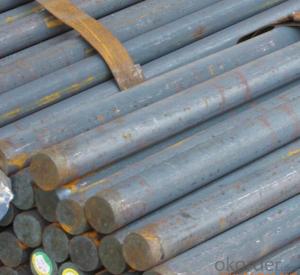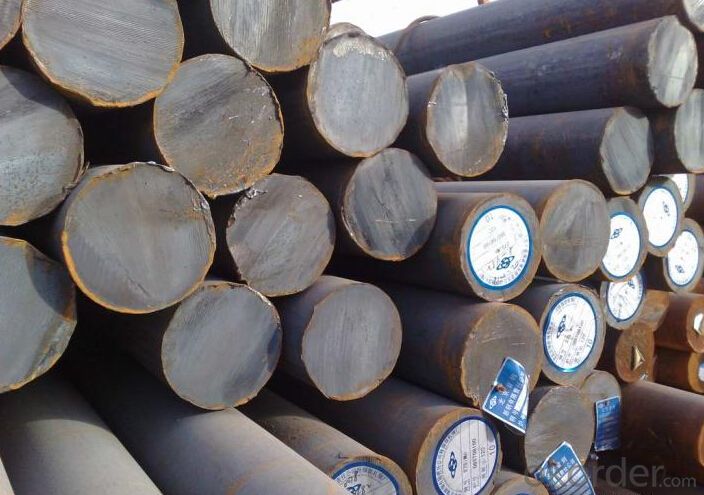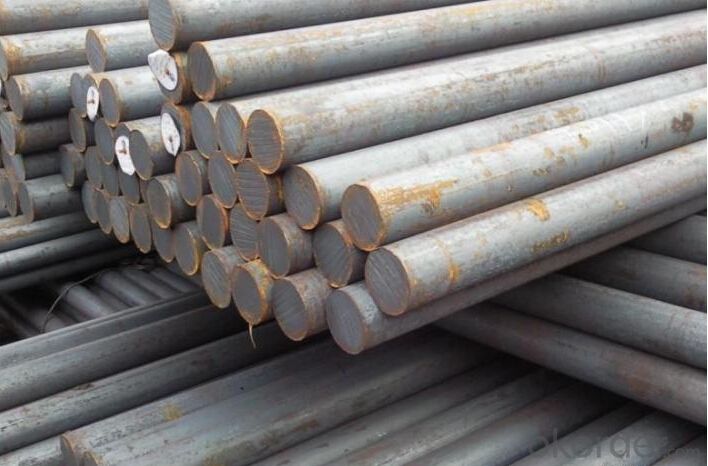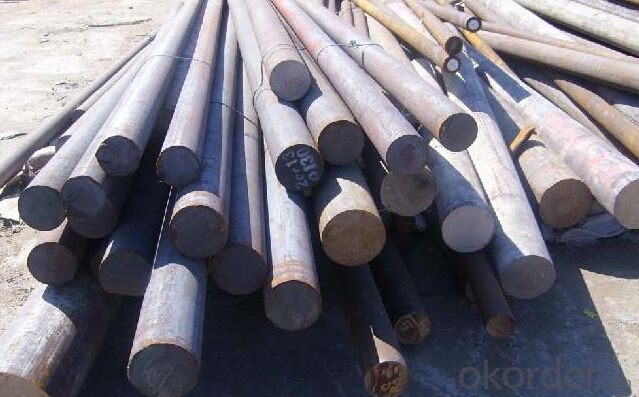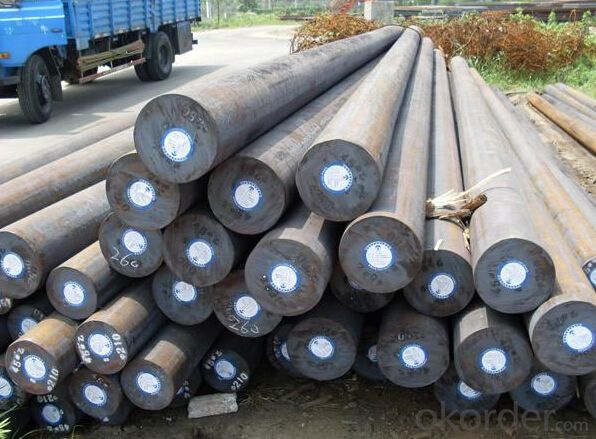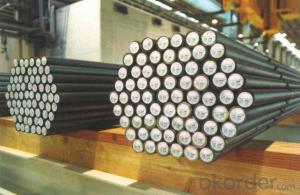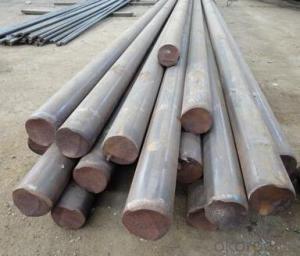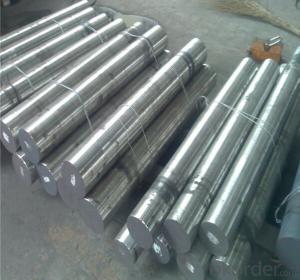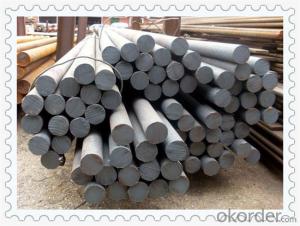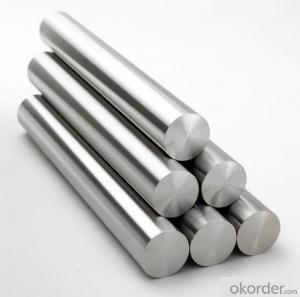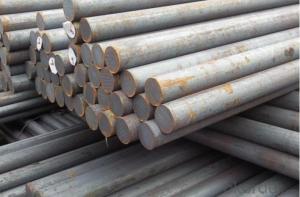SAE1018 steel round bar/ASTM A36 steel equivalent
- Loading Port:
- Tianjin
- Payment Terms:
- TT OR LC
- Min Order Qty:
- 3 m.t.
- Supply Capability:
- 10000 m.t./month
OKorder Service Pledge
OKorder Financial Service
You Might Also Like
Specification
SAE1018 steel round bar/ASTM A36 steel equivalent
Name | Carbon Steel Round Bar |
Shape | Round Bar/Square Bar/Flat Bar/Plate/Wire |
Standard | GB/ASTM/SAE/AISI/DIN/JIS/EN/BS |
Surface Treatment: | Black/Peeling/Polished/Machined |
Delivery Condition: | Hot Rolled or Forged/Peeled or Black Surface |
Test | SGS/UT 100% Elements Testing |
Certificate: | ISO/Mill Certificate |
Service: | 24 hours online service / |
more than 20 years trading and manufacture | |
Quality Assurance: | the third party inspection, such as SGS, BV, TUV…etc. is acceptable |
Packaging Details: | seaworthy packaging or as per customer's packing instruction |
Chemical Composition
Grade | C | Si | Mn | P | S | Cr | Ni | B |
1020 | 0.17-0.23 | 0.17-0.37 | 0.35-0.65 | Max 0.030 | Max 0.030 | Max 0.25 | Max 0.30 | 0.0008-0.0030 |
1045 | 0.42-0.50 | 0.17-0.37 | 0.50-0.80 | Max 0.030 | Max 0.030 | Max 0.25 | Max 0.30 | 0.0008-0.0030 |
Packaging & Delivery
Packaging Detail | Sea worthy packing /as per customer's packing instruction |
Delivery Detail | 15 ~ 40 days after receiving the deposit |
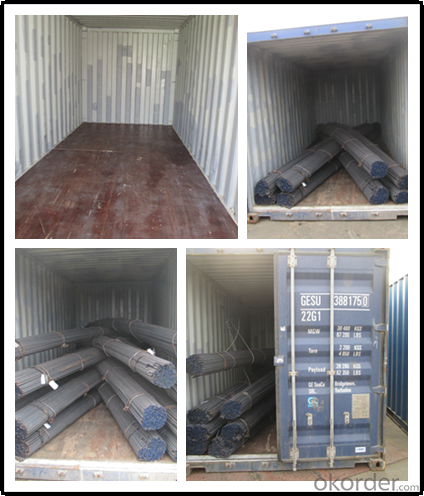
Product Show
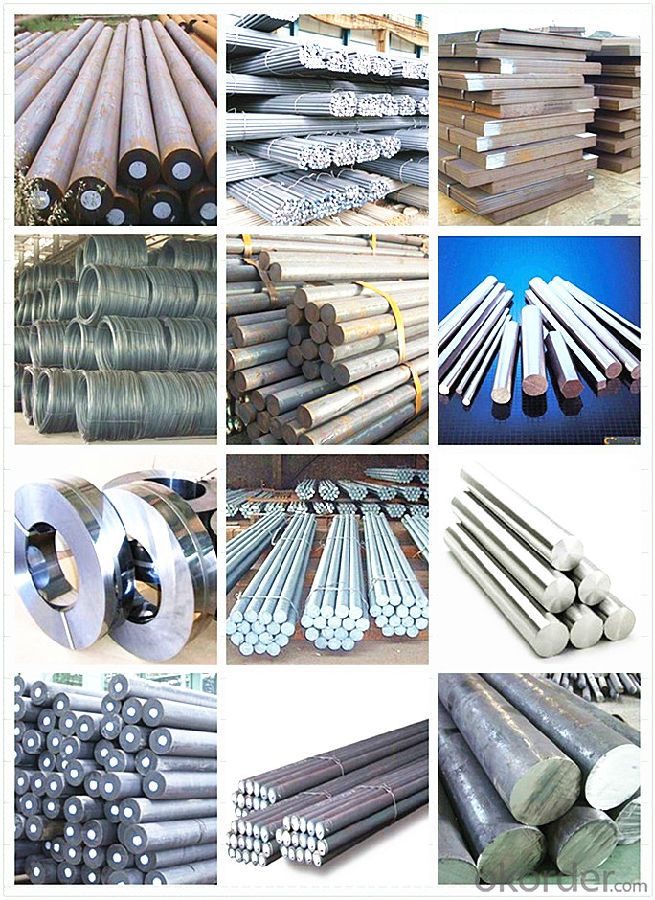
Workshop
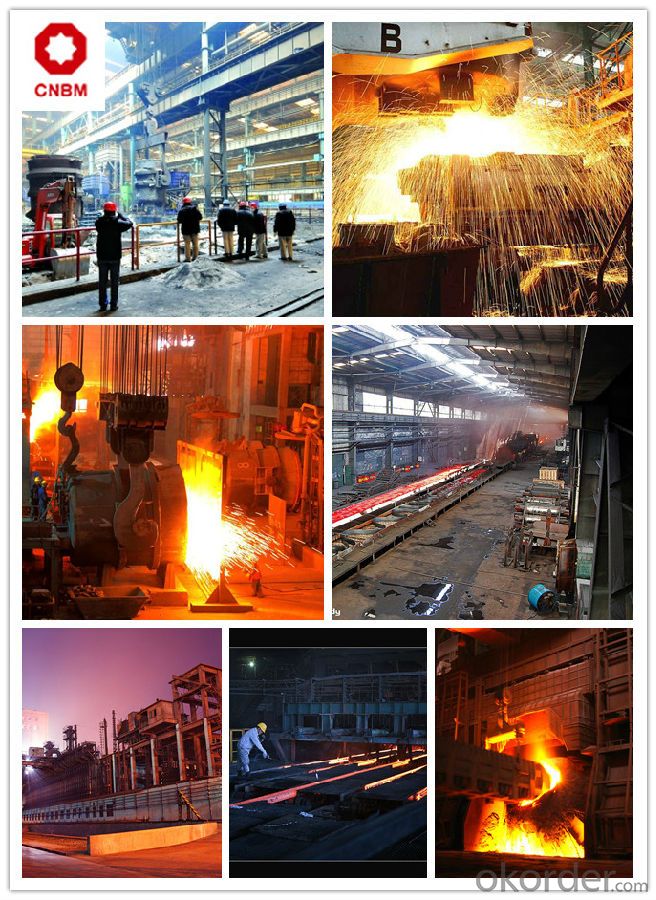
FAQ
Are you a trading company or manufacturer? | Manufacturer |
What’s the MOQ? | 3 metric ton |
What’s your delivery time? | 15-35 days after downpayment received |
Do you Accept OEM service? | Yes |
what’s your delivery terms? | FOB/CFR/CIF |
What's the Payment Terms? | 30% as deposit,70% before shipment by T/T |
Western Union acceptable for small amount. | |
L/C acceptable for large amount. | |
Scrow ,Paybal,Alipay are also ok | |
Why choose us? | Chose happens because of quality, then price, We can give you both. |
Additionally, we can also offer professional products inquiry, products knowledge train (for agents), smooth goods delivery, excellent customer solution proposals. | |
What's your available port of Shipment? | Main Port, China |
What’s your featured services? | Our service formula: good quality+ good price+ good service=customer's trust |
Where are your Market? | Covering more than 160 countries in the world |
- Q: What are the main factors affecting the cost of special steel?
- The main factors affecting the cost of special steel include the cost of raw materials, such as iron ore and other alloying elements, as well as energy costs for the production process. Additionally, market demand and supply dynamics, production capacity, labor costs, and transportation expenses also play a significant role in determining the cost of special steel.
- Q: How does the availability of raw materials affect the production of special steel?
- The production of special steel heavily relies on the accessibility of raw materials. Special steel, renowned for its outstanding strength, durability, and corrosion resistance, is widely used in industries like automotive, aerospace, and energy. The availability of raw materials, including iron ore, coal, chromium, nickel, and molybdenum, directly affects the production of special steel. These materials are crucial for the composition and characteristics of the steel. Any disruptions in their supply can significantly impact the production process. If the availability of iron ore, which is the primary source of iron, becomes limited or expensive, it can result in a scarcity of the main ingredient for steel production. Consequently, the production of special steel may decrease, leading to higher prices and potential shortages in the market. Similarly, the availability and cost of alloying elements play a vital role. These elements enhance the properties of steel, making it suitable for specific applications. For instance, chromium improves corrosion resistance, while molybdenum enhances strength at high temperatures. If these alloying elements are not readily available, it may hinder the ability to produce special steel with the desired properties. Moreover, the availability of energy resources like coal or natural gas is crucial for special steel production. These resources are used in the steelmaking process, particularly in the production of coke, which is essential for smelting iron ore. Limited availability or increased prices of energy resources can impact the cost and efficiency of steel production. In conclusion, the availability of raw materials plays a vital role in the production of special steel. Any disruptions or limitations in the supply of raw materials, including iron ore, alloying elements, and energy resources, can have a significant impact on the production process. This can result in higher prices, potential shortages, and compromised properties of the final product. Thus, ensuring a stable and sufficient supply of raw materials is crucial for the production of high-quality special steel.
- Q: What are the key properties of special steel?
- The key properties of special steel include high strength, excellent toughness, good corrosion resistance, and high temperature resistance. Special steel is also known for its ability to be easily machinable and weldable, making it a versatile material for various industries such as automotive, aerospace, and construction.
- Q: What are the requirements for special steel used in mining equipment manufacturing?
- The requirements for special steel used in mining equipment manufacturing are quite specific and demanding due to the harsh and challenging conditions associated with mining operations. Here are some key requirements: 1. High strength and toughness: Special steel used in mining equipment must possess excellent strength and toughness to withstand heavy loads, impact, and abrasion. This enables the equipment to withstand the demanding conditions encountered during mining operations. 2. Wear resistance: Mining equipment is exposed to abrasive materials such as rocks, ores, and minerals. Hence, the special steel used in their manufacturing needs to exhibit exceptional wear resistance properties to minimize wear and prolong the equipment's lifespan. 3. Corrosion resistance: Mining operations often take place in wet and corrosive environments, such as underground mines or near bodies of water. Special steel used in mining equipment should have good corrosion resistance to prevent rusting and degradation, ensuring the equipment's longevity and reliability. 4. Heat resistance: Mining equipment may generate significant heat during operation, especially in applications like drilling or cutting. Therefore, the special steel must have excellent heat resistance properties to withstand high temperatures without losing its strength or hardness. 5. Weldability and machinability: Special steel used in mining equipment should be easily weldable and machinable to facilitate the manufacturing process. This ensures that the equipment can be efficiently constructed, repaired, or modified as required. 6. Certification and compliance: Mining equipment manufacturers often require special steel to meet specific industry standards and certifications, such as ISO 9001, ASTM, or API. Compliance with these standards ensures that the steel used in the equipment meets the necessary quality and performance requirements. Overall, the requirements for special steel used in mining equipment manufacturing revolve around strength, toughness, wear resistance, corrosion resistance, heat resistance, weldability, machinability, and compliance with industry standards. Meeting these requirements ensures that the steel can withstand the demanding conditions of mining operations and contribute to the durability and performance of the equipment.
- Q: What are the factors to consider when selecting special steel for a specific application?
- When selecting special steel for a specific application, some important factors to consider include the required strength and hardness, corrosion resistance, temperature resistance, machinability, weldability, and cost. Other factors may include the desired surface finish, dimensional stability, availability, and any specific industry or regulatory requirements.
- Q: How is leaded steel used in machining operations?
- Leaded steel is commonly used in machining operations as it improves the machinability of the steel by reducing friction and cutting forces. The addition of lead in the steel composition allows for smoother and more efficient cutting, resulting in better surface finish and dimensional accuracy of machined parts.
- Q: How does special steel resist thermal fatigue?
- Special steel resists thermal fatigue due to its unique composition and structure. It is designed to have excellent thermal conductivity, allowing it to quickly dissipate heat and prevent the formation of thermal gradients within the material. This reduces the likelihood of cracking, deformation, or failure when exposed to rapid and repeated temperature fluctuations. Additionally, special steel undergoes specific heat treatment processes that enhance its resistance to thermal fatigue by improving its strength, toughness, and ability to withstand thermal shocks.
- Q: How does special steel contribute to the automotive suspension industry?
- Enhanced strength, durability, and performance are essential qualities that special steel brings to the automotive suspension industry. Suspension components greatly benefit from special steel alloys, particularly high-strength low-alloy (HSLA) steel, which are tailor-made to withstand the demanding conditions of the suspension system. This ensures optimal performance and safety. One of the primary advantages of special steel in the automotive suspension industry lies in its outstanding strength-to-weight ratio. Suspension components crafted from special steel alloys can endure heavy loads without succumbing to deformation, resulting in improved vehicle handling, stability, and overall performance. Its strength also contributes to increased durability, reducing the likelihood of premature component failure and extending the lifespan of the suspension system. Moreover, special steel offers superb fatigue resistance, a critical characteristic in the suspension industry where components experience repeated stress and vibrations. This fatigue resistance prevents the occurrence of cracks and fractures in suspension parts, guaranteeing dependable and secure operation even in challenging conditions. Additionally, special steel alloys provide superior corrosion resistance, safeguarding suspension components from the damaging effects of moisture, salt, and other environmental factors. This corrosion resistance extends the lifespan of the suspension system, decreasing maintenance costs, and enhancing overall reliability. Furthermore, special steel allows for improved design flexibility in suspension components. Its unique properties, such as high formability and weldability, enable manufacturers to create intricate and lightweight designs, resulting in more efficient suspension systems. These lightweight designs not only contribute to fuel efficiency and reduced emissions but also enhance the overall driving experience by improving vehicle agility and responsiveness. In summary, special steel plays an indispensable role in the automotive suspension industry, delivering enhanced strength, durability, and performance to suspension components. Its exceptional strength-to-weight ratio, fatigue resistance, corrosion resistance, and design flexibility contribute to improved handling, stability, safety, and overall vehicle performance. Through its unique properties, special steel ensures reliable and efficient suspension systems, satisfying the demanding requirements of the automotive industry.
- Q: What are the main advantages of using special steel in the construction of bridges?
- The main advantages of using special steel in the construction of bridges are its exceptional strength and durability. Special steel alloys offer high tensile strength, allowing for lighter bridge designs and reducing the overall weight of the structure. This not only makes construction and transportation easier but also minimizes the environmental impact. Additionally, special steel exhibits excellent corrosion resistance, ensuring the longevity of the bridge even in harsh weather conditions. Its superior toughness and resistance to fatigue make it ideal for withstanding heavy loads and frequent use, ensuring the safety and reliability of the bridge for many years.
- Q: What are the applications of special steel in the agriculture sector?
- Special steel has various applications in the agriculture sector due to its exceptional properties such as durability, corrosion resistance, and strength. It is used in the manufacturing of farm equipment and machinery like tractors, plows, harrows, and combine harvesters. Special steel is also utilized in the construction of storage silos, irrigation systems, and animal housing structures. Additionally, it is employed in the production of cutting tools and blades for efficient crop harvesting and maintenance.
Send your message to us
SAE1018 steel round bar/ASTM A36 steel equivalent
- Loading Port:
- Tianjin
- Payment Terms:
- TT OR LC
- Min Order Qty:
- 3 m.t.
- Supply Capability:
- 10000 m.t./month
OKorder Service Pledge
OKorder Financial Service
Similar products
Hot products
Hot Searches
Related keywords

